How many of us really cook from scratch? By that, I don’t mean frying some chicken strips and throwing in a jar of pasta sauce. By scratch, I mean really stripping back how we prepare our food, to using only unprocessed, natural ingredients.
It’s actually pretty hard to even find recipes that don’t include processed ingredients in some form; but being able to produce edible, tasty food that doesn’t rely on anything being picked up at the store is a really useful skill that every prepper should learn.
So What’s Out?
More than you think. Cheese and butter, unless they’re homemade; seasoning mixes, anything commercially canned or bottled, and a slew of other things. You need to apply a little mindfulness here. Next time you cook, take note of how many ingredients really are unprocessed. You’ll probably be surprised!
What’s In?
Thankfully, lots of foods that preppers will already have on their radar. Dried beans, rice, sea salt, peppercorns, unprocessed dried and fresh spices and herbs; any fresh fruit, vegetables, meat and fish. There are many more, but this is already a reassuringly full list.
Easy Cheese
The thing is, true scratch cooking isn’t complicated or challenging. It just requires a different mind-set. Being able to make great tasting food without needing to go to the store is a great skill to have. You can break down the elements you want to include in your cooking and either find an alternative, or learn how to make it yourself.
For example, you can make a basic cheese by warming together 1/2 gallon of milk, 1/4 cup lemon juice or vinegar, and a pinch of salt. But wait, that milk; has it been pasteurized? If it has, then it’s a processed ingredient. If you want to eat from scratch, then you need a supply of raw, untreated milk to make your own dairy products.
 Sweet Nothings
Sweet Nothings
You might need to adjust your ideas about baking if you want to cook from scratch, as butter, flour and sugar are usually processed. You can make butter easily if you have a supply of raw cream, and grinding flour for bread is a breeze if you have some grains and a coffee grinder or purpose bought grain mill.
Sugar is a little trickier. Even raw sugar has undergone processing, just a little less that it’s gleaming white counterpart. Raw honey and home-treated maple sap are natural sweeteners that you can use in place of sugar, although you’ll need to tweak your favorite recipes to account for the additional liquid volume.
Learning From the Ancestors
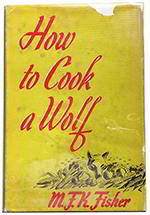
The further you venture into scratch cooking, the closer you get to nature, and the rudiments of foraging and seasonal eating. Our great-grandparents almost certainly had a much more basic, yet more wholesome diet eating mainly unprocessed foods.
Cookbooks that date back a hundred years or more are a revelation when it comes to scratch cooking. As well as a treasure trove of delicious recipes, there are frequently tips on making stocks, using leftovers and reducing food waste that preppers might find inspiring.
Oiling the Wheels
How about oils? Well, many oils have been heat treated to extract more product, but this process destroys some of the available nutrients. Low heat or cold-pressing methods retains more of the goodness but the yield is lower. Learning how to make your own oil is an excellent prepper’s skill to acquire.
If you can make your own oil, then you can make soap, candles, lamp oil and a possible bio-fuel as well as nailing one of the building blocks of scratch cooking. How can a prepper not learn to make their own oil?
Don’t think olive oil; seeds and nuts are great and relatively inexpensive oil-producers. Sunflower seeds in particular are very easy to grow, and those giant seedheads mean that you’ll never need to buy seeds for the next crop again!
Domestic oil presses aren’t prohibitively expensive; you can pick up a new one for around $120, or look out for a second hand one. They can produce over 1 litre of oil per hour and tend to be sturdily built to guarantee a long and useful life.
Preserving the Future
Scratch cooking as a lifestyle choice inevitably nudges up against the concept of preserving the harvest. Beans, pulses and rice need clean water to cook them, but are a staple for most preppers. Dried meat, fish, fruit and vegetables are useful non-processed foods that can add texture and flavour to your cooking.
Related: Preserving Potatoes Year Round; A Solid Choice for Preppers
What Else?
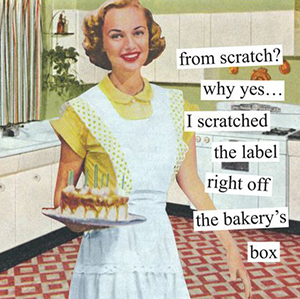 Every time you open a packet, box, bag or jar from the store, think about what you’re eating and whether you can tweak your diet to leave out more processed food and replace it with something more wholesome.
Every time you open a packet, box, bag or jar from the store, think about what you’re eating and whether you can tweak your diet to leave out more processed food and replace it with something more wholesome.
We have never had more options available to us in terms of how we eat. That means that we can try exciting new foods and experience taste combinations and flavours that our ancestors could not have dreamed of.
But in our rush to embrace convenience, variety and value, we can lose sight of food provenance and our ability to provide for ourselves. Preppers, more than most people, are aware that a major threat to society’s infrastructure would almost certainly mean that we might be called upon to feed ourselves and our families without access to store-bought convenience foods.
With a few basic skills, you can learn to eke out vital supplies and supplement your diet in a wholesome and healthy way.
Good For You, Good For the Planet
It’s not just your health that gets boosted by consuming more natural foods. Food packaging is out of control and landfill sites are filled with the by-products of the modern diet. Cutting out some of that waste is good for the environment too.
Eat Clean, Love Your Liver
Once you start to ditch the processed ingredients, you’ll save money, and you’ll probably notice an increase in your energy levels. This is because your liver, the powerhouse of your body, is constantly working to filter out impurities and toxins. By eating ‘clean’ and essentially giving it less to do, your untaxed liver will work even more efficiently.
Learning to cook truly from scratch is an art. But by making a few changes in your lifestyle, it need never become a lost one.
You may also like:
 33 Essential Foods to Stock Pile
33 Essential Foods to Stock Pile
An insanely effective way to build a 5-year food stockpile (Video)
How to Make Pine Syrup at Home (Step by Step Guide With Pictures)

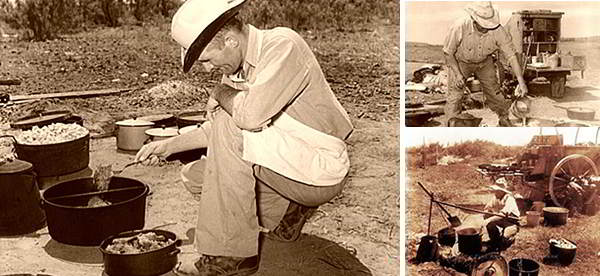
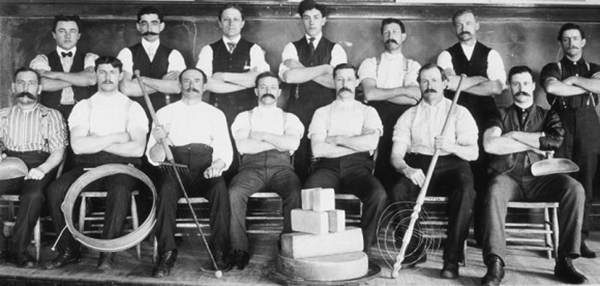 Sweet Nothings
Sweet Nothings
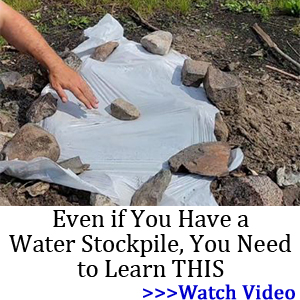
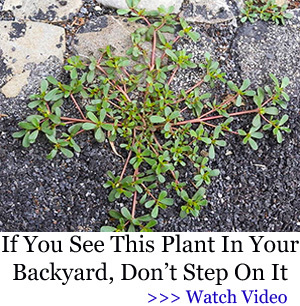



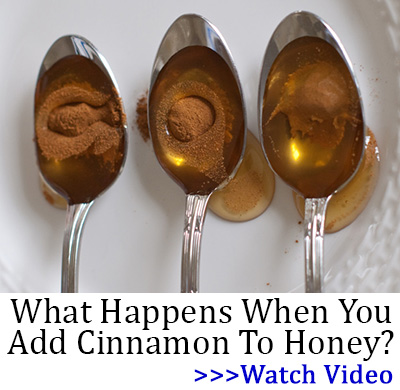
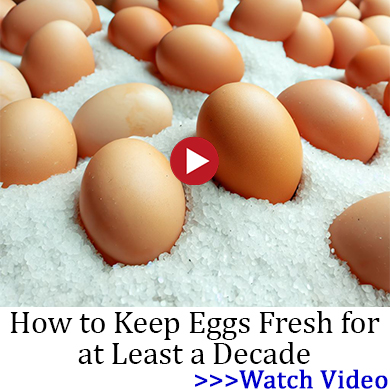
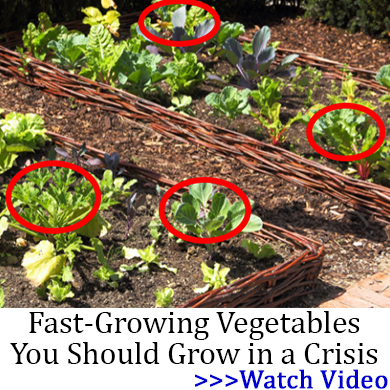

I have been learning and slowly doing this for years now…grant you…yes I still shop at the grocery…and I’d love to get away from doing that all the time…however, it’s harder than one thinks….but I do make certain dishes and ingredients myself. From my own lard & tallow to butter and spice mixes….right now it’s a learning game for myself…always on the hunt for how to books….and older cookbooks from the 1700-1900’s…do you have a good link ? for great books for learning….thank you for the sight by the way….I just love this!
There are some good resources around the web. Here is a link to a cook book published in 1846 https://archive.org/details/missbeechersdome01beec It’s from archive.org, I believe they have others as well. I also like watching videos from Jas Townsend and son on youtube- they recreate recipes from the1700’s with authentic tools and cooking techniques.
Awesome, thanks so much for the information, I for sure check into that!!!!
Appreciate your info. One of the things I like about prepper sites is folks attitude about helping. Each of us have different gifts to share.
I always try to make everything from scratch, I tend to shy away from recipes that call for things like canned soup or pre-made products other than certain pastas I do make some myself, I like to bake my own bread, make my own sausage and have even dabbled in making cheese, I can the produce I grow, I’ve been doing this for years my mother and grandmother did this and I was always fascinated in what they were doing, instead of being out playing all the time I learned to cook, my grandmother was from Italy and made the best bread, cooked the best food and my mother was as good of a cook too, back in the 50’s there wasn’t the availability of so much store bought things unless you were well off, we weren’t so my family made what we ate, preserved the food they grew and I feel we are better off for living that life style!
Claude your book is wonderful. I’m already a member. Will write later when I have more time. It’s 2:45 AM.
Thank You for the info. i saw the oil production video and it is great. i did rember my Grandmother making riced potatoes with the hand ricer. It may be good to place a circle of cloth into the ricer add the ground seed, fold the ends of the cloth over the seed and squeeze the oil out with the ricer. Faster than hand squeezing..
Thanks Again!
There’s a lot of reproduction of old cookbooks, from a time the author understood a cook needed to know how-to on everything. People who own the originals can be deadly about protecting them. Like my kid sister…And for good reason. niio